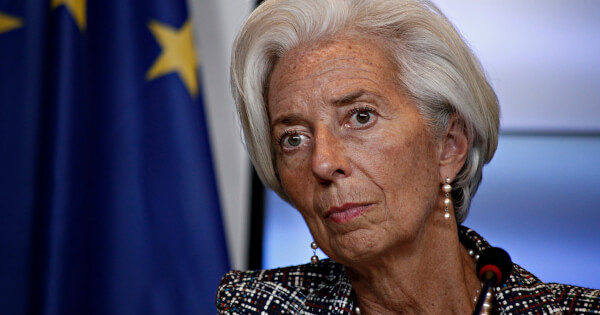ECB Nears Final Stage of Digital Euro Investigation
Rebeca Moen Sep 06, 2023 03:30
Fabio Panetta, ECB Executive Board member, discussed the digital euro initiative with the European Parliament's Committee on Economic and Monetary Affairs. The proposal includes legislative proposals on the digital euro and cash legal tender status, aiming to preserve monetary sovereignty and digital freedoms.

During a recent hearing with the European Parliament's Committee on Economic and Monetary Affairs, Fabio Panetta, who serves on the Executive Board of the European Central Bank (ECB), offered a comprehensive briefing on the status of the digital euro initiative. This update arrives as the ECB is wrapping up its investigative phase, laying the groundwork for the Governing Council to determine the next steps for the project.
Key Legislative Proposals
In June, the European Commission introduced a single currency package, including legislative proposals on the digital euro and the legal tender status of cash. Panetta stated that these proposals "create a new paradigm for preserving monetary sovereignty while guaranteeing people’s freedoms in the digital age." The measures aim to ensure that Europeans can choose between cash, digital euro, and private digital means of payment for their everyday transactions.
Legal Tender Status and Accessibility
One of the pivotal aspects of the legislative proposal is the legal tender status of the digital euro. This would grant people the right to access and pay with digital euro through their current banks, without the need to switch financial institutions. Panetta emphasized that "everybody would be able to use their digital euro whenever and wherever they want to, throughout the euro area."
Privacy and Data Protection
The draft legislation also focuses on privacy and data protection. According to Panetta, the Eurosystem would not have access to personal details of digital euro users or connect any payment information to private individuals. The digital euro would offer "cash-like privacy," allowing payments to be made offline.
Pricing and Financial Stability
The Commission's proposal strikes a balance between public and private sector pricing objectives. Basic services of the digital euro would be free for end-users, while intermediaries would be compensated similarly to existing private digital payment methods. Panetta also noted that tools like holding limits would be designed to maintain financial stability and prevent undesirable consequences for monetary policy.
The Road Ahead
The ECB is currently preparing its opinions on the legislative proposals and will report on the findings of its investigation phase next month. Panetta reiterated that a decision to issue a digital euro would only be made after the legislation is adopted.
Implications for the Financial Sector
Panetta warned against the risks of leaving digital payments entirely to the private sector, citing PayPal's recent decision to launch its own US dollar-denominated stablecoin. He argued that a digital euro would offer a public alternative, mitigating the risks of potential monopolistic behavior in the digital payments market.
Conclusion
As the ECB's investigation phase comes to a close, the future of the digital euro hinges on legislative decisions and ongoing dialogue with stakeholders. The project aims to make the euro fit for the digital age while preserving monetary sovereignty and individual freedoms.
Image source: Shutterstock.jpg)